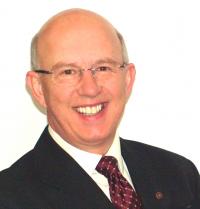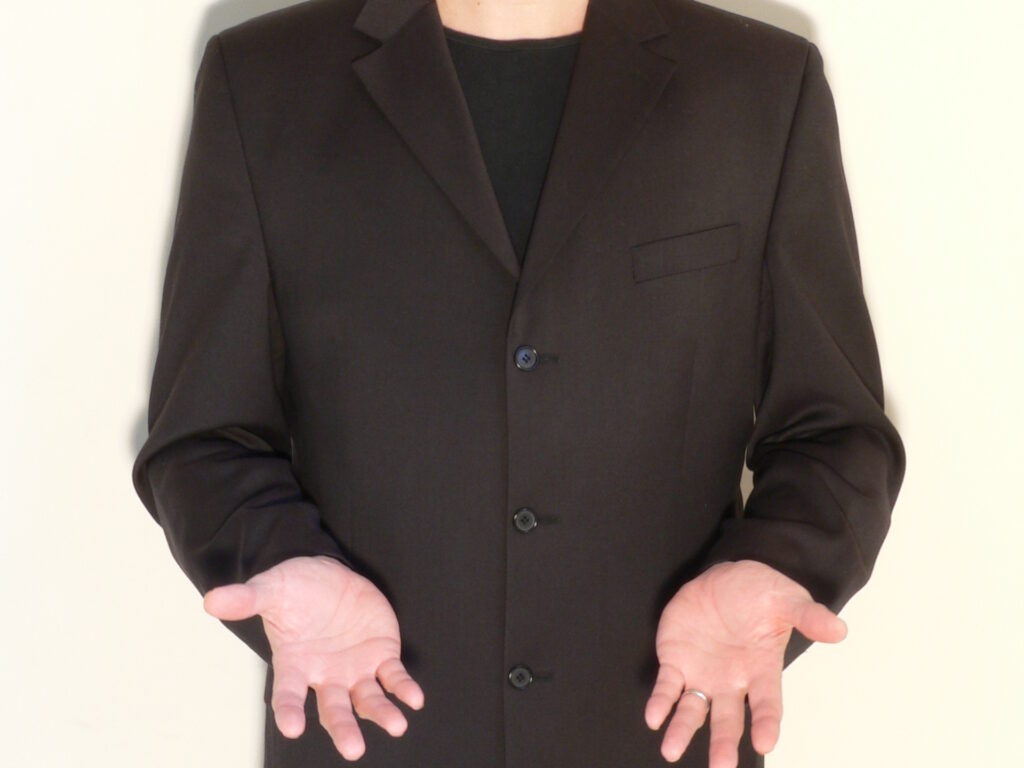This month, body language expert Peter Clayton looks at how understanding body language can reap benefits for both your training skills and bottom line.
The problem
The solution
Looking back, my main reason for studying body language in the first place was to increase my hit rate. I won plenty of business and signed many contracts, but occasionally I lost a sale and I knew it was my fault and that I had misread the situation.
Reading body language is extremely important because decision makers don’t tell you why you’ve failed – and in some cases they don’t know why themselves. They just decide "Not this time".
I follow a typical formula that you would find in most meetings; one that enables me to take benchmarks that I use later in the meeting. At the beginning of most meetings there is a certain amount of small talk, which normally only lasts for a few minutes but is extremely useful. Simple questions with regard to finding the office, traffic, the weather and "How long have you worked here?” “How has the company changed over the years?” It’s important to me to use as benchmarks. I log away reference points to their eye contact (% and direction), what position the person has taken in their seat. Are they leaning very slightly forwards or relaxed? The volume level of their voice is essential to get a feel for, as is inflection and tone.
I store these images and voice levels and tone very carefully, because as the meeting progresses things will change and I may need to change my tactics.
There will not be obvious signs of disappointment, disagreement or boredom when someone is losing interest or believes that you do not completely understand a situation. Signs will be slow and gradual. First off there will be less body movement. They may move very slightly away, a few inches back, in what appears to be a relaxed position in their seat. Shoulders will drop and eye contact will drop by 20-30%. However, the biggest give-away is the voice. It will still be polite, possibly friendly, but be quieter and lack inflection. These signs tell you that something could be wrong.
 "There won’t be obvious signs of disappointment, disagreement or boredom when someone is losing interest or believes that you do not completely understand a situation. Signs will be slow and gradual."
"There won’t be obvious signs of disappointment, disagreement or boredom when someone is losing interest or believes that you do not completely understand a situation. Signs will be slow and gradual."Another area that will help is what I call “The Nose Blush”. When we are thinking one thing and saying another, we feel uncomfortable. The facial skin gets warmer, especially around the base of the nose, ear lobes and neck. When you hear somebody say something which appears to be positive, but then they rub the base of their nose at exactly the same time, something is wrong and needs further investigation. What happens is that blood has come to the surface of the skin similar to blushing when we were children, except it does not show as blushing, just minor tingling. Another point worth mentioning is the eyes. They constrict when someone is concealing negative thoughts, where as dilated pupils are a sign of enthusiasm and interest.
The easy route when you have seen the signs of someone move away, become quieter or fidget with their face or ears, is to ask them if there is any part of what you have said so far that they have an issue with. If it’s not too late, your decision maker will come forward and start a response with something like "Actually since you mention it…" or some diplomatic phrase to say: "We are on a different wavelength".
Ask as many open questions as you can, responding with, "I see", "That’s interesting," and variations. You should be able to work out where you lost them and get back on track. The key thing to bear in mind when looking at body language from this point of view is that relaxed body language with lower eye contact and a quieter voice is not somebody relaxing in business meeting. It looks that way because it is called polite body language and because you are just a few feet away from each other. We all do it. The trick is to tell the difference between one and the other and respond accordingly.
Do you have a pressing body-language related issue that Peter can help you with? If so, please email us: editor@trainingzone.co.uk
Read Peter’s previous columns: If the know-it-all actually knows it all and Reading between the lines.
Peter Clayton is a leading body language expert, speaker and trainer as well as a consultant for the BBC and ITV. He writes for a wide range of national papers and magazines and is a specialist consultant to other speakers, leading businesses, celebrities and politicians. For more information, visit his website:www.peterclayton.com.
This month, body language expert Peter Clayton looks at how understanding body language can reap benefits for both your training skills and bottom line.
The problem
The solution
Looking back, my main reason for studying body language in the first place was to increase my hit rate. I won plenty of business and signed many contracts, but occasionally I lost a sale and I knew it was my fault and that I had misread the situation.
Reading body language is extremely important because decision makers don't tell you why you've failed - and in some cases they don't know why themselves. They just decide "Not this time".
I follow a typical formula that you would find in most meetings; one that enables me to take benchmarks that I use later in the meeting. At the beginning of most meetings there is a certain amount of small talk, which normally only lasts for a few minutes but is extremely useful. Simple questions with regard to finding the office, traffic, the weather and "How long have you worked here?” “How has the company changed over the years?” It's important to me to use as benchmarks. I log away reference points to their eye contact (% and direction), what position the person has taken in their seat. Are they leaning very slightly forwards or relaxed? The volume level of their voice is essential to get a feel for, as is inflection and tone.
I store these images and voice levels and tone very carefully, because as the meeting progresses things will change and I may need to change my tactics.
There will not be obvious signs of disappointment, disagreement or boredom when someone is losing interest or believes that you do not completely understand a situation. Signs will be slow and gradual. First off there will be less body movement. They may move very slightly away, a few inches back, in what appears to be a relaxed position in their seat. Shoulders will drop and eye contact will drop by 20-30%. However, the biggest give-away is the voice. It will still be polite, possibly friendly, but be quieter and lack inflection. These signs tell you that something could be wrong.
 "There won't be obvious signs of disappointment, disagreement or boredom when someone is losing interest or believes that you do not completely understand a situation. Signs will be slow and gradual."
"There won't be obvious signs of disappointment, disagreement or boredom when someone is losing interest or believes that you do not completely understand a situation. Signs will be slow and gradual."Another area that will help is what I call “The Nose Blush”. When we are thinking one thing and saying another, we feel uncomfortable. The facial skin gets warmer, especially around the base of the nose, ear lobes and neck. When you hear somebody say something which appears to be positive, but then they rub the base of their nose at exactly the same time, something is wrong and needs further investigation. What happens is that blood has come to the surface of the skin similar to blushing when we were children, except it does not show as blushing, just minor tingling. Another point worth mentioning is the eyes. They constrict when someone is concealing negative thoughts, where as dilated pupils are a sign of enthusiasm and interest.
The easy route when you have seen the signs of someone move away, become quieter or fidget with their face or ears, is to ask them if there is any part of what you have said so far that they have an issue with. If it's not too late, your decision maker will come forward and start a response with something like "Actually since you mention it..." or some diplomatic phrase to say: "We are on a different wavelength".
Ask as many open questions as you can, responding with, "I see", "That's interesting," and variations. You should be able to work out where you lost them and get back on track. The key thing to bear in mind when looking at body language from this point of view is that relaxed body language with lower eye contact and a quieter voice is not somebody relaxing in business meeting. It looks that way because it is called polite body language and because you are just a few feet away from each other. We all do it. The trick is to tell the difference between one and the other and respond accordingly.
Do you have a pressing body-language related issue that Peter can help you with? If so, please email us: editor@trainingzone.co.uk
Read Peter's previous columns: If the know-it-all actually knows it all and Reading between the lines.
Peter Clayton is a leading body language expert, speaker and trainer as well as a consultant for the BBC and ITV. He writes for a wide range of national papers and magazines and is a specialist consultant to other speakers, leading businesses, celebrities and politicians. For more information, visit his website:www.peterclayton.com.







